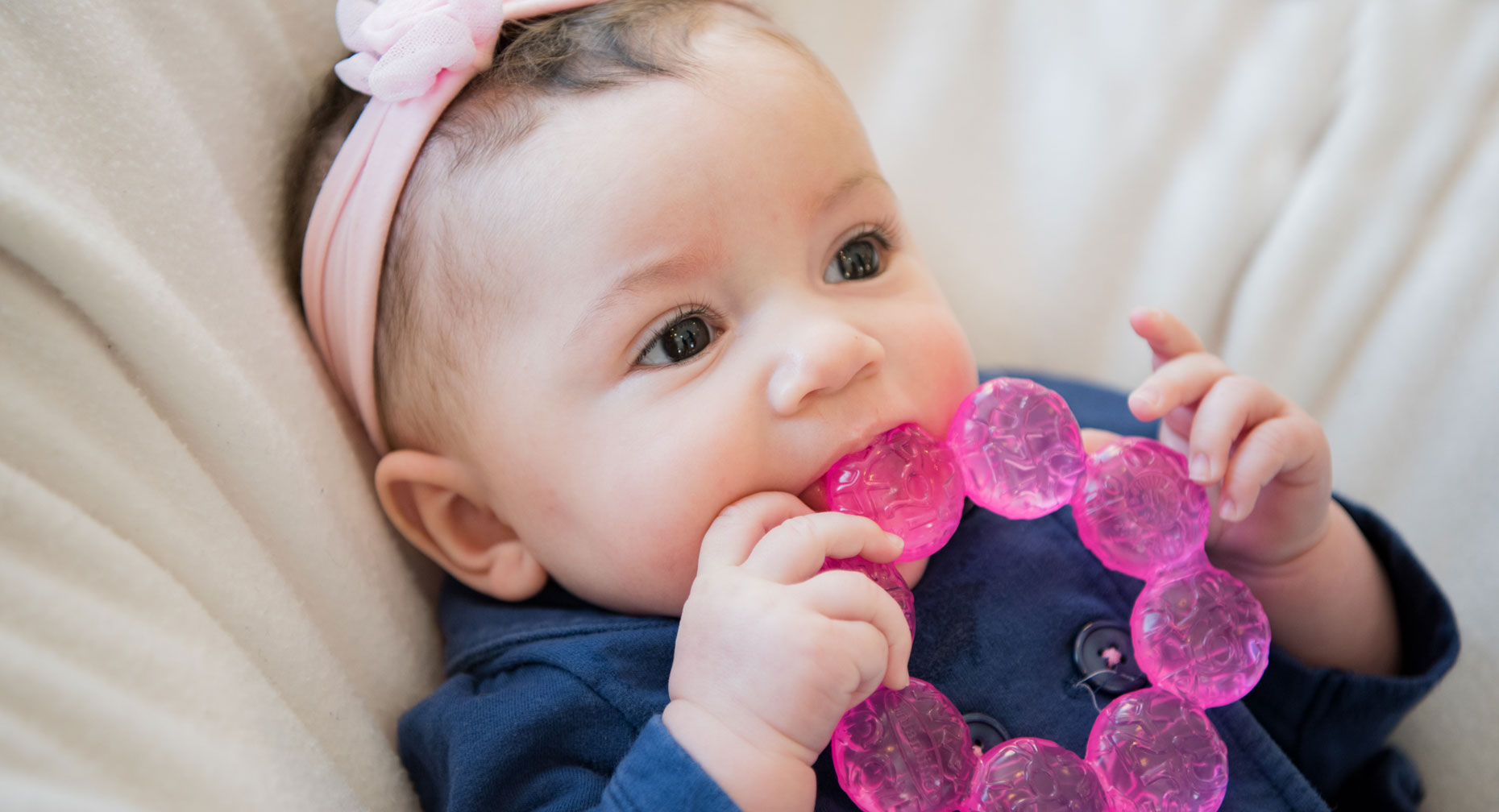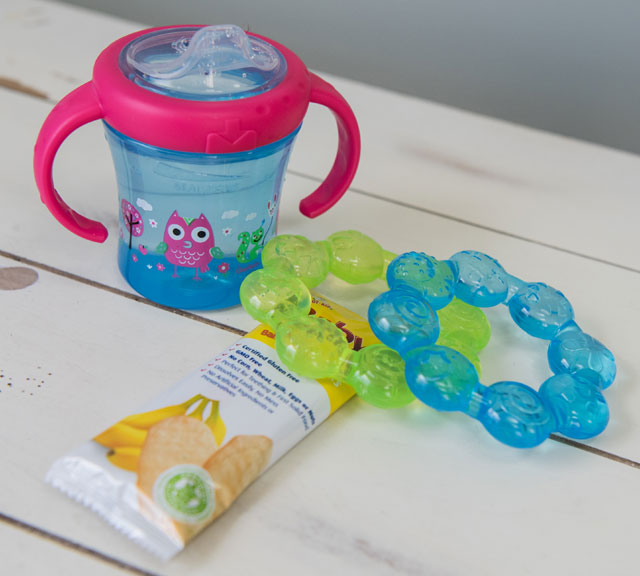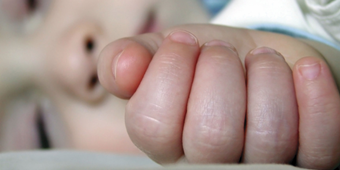Conquer Baby’s Teething Pain

Answer a few questions and we'll provide you with a list of primary care providers that best fit your needs.
When your baby begins teething you’ll want to do all you can to ease his discomfort.
There are many simple, safe ways to soothe your baby’s aching gums and provide comfort. In most cases, medicine is not needed — or recommended. Pediatricians caution that these medicines can numb the throat and cause difficulty swallowing, says HealthyChildren.org.
Teething usually begins when babies are between 4 and 7 months old, but it can also start much later.
Teething Symptoms
Every baby reacts differently to the natural process of teething. In general, symptoms include:
- Mild irritability
- A low-grade fever (below 100.4 degrees Fahrenheit)
- Excessive drooling
- Swollen and tender gums
- The urge to chew
Teething happens during a time of much change in a baby's life and is often wrongly blamed for other conditions, such as changes in sleep patterns and appetite, congestion, coughing, vomiting and diarrhea. If your baby experiences any of these symptoms or a fever above 100.4 degrees, talk to your doctor about possible causes and treatments.
5 Ways to Soothe Sore Gums
When your baby is teething, her gums are likely to become swollen and tender. HealthyChildren.org recommends following a few simple steps to keep your baby happy and comfortable.
Massage. Gently rub the gums with your clean finger.
Chew. Provide unsweetened teething crackers, a chilled teething ring, chilled or frozen washcloth, frozen banana or bagel for your baby to gnaw on. Avoid frozen teething toys, which can numb a child’s gums and cause harm.
Sip. Infants older than 6 months may find relief by drinking cool water from a slow-flow sippy cup.
Maintain routines. Even if your baby is irritable, stick to your unusual bedtime and bedtime routines.
Pain relief. Small doses of acetaminophen or ibuprofen may help, as recommended by your pediatrician.
Avoid Homeopathic Remedies and Numbing Medicines
Despite the availability of homeopathic teething tablets and gels and numbing medicines, the Food and Drug Administration warns against using them.
Many homeopathic teething pain remedies contain belladonna, which is a plant poison, says Healthychildren.org. Belladonna is a natural anesthetic that works like the drug benzocaine. The FDA says homeopathic teething tablets and gels may cause adverse side effects in babies, including:
- Seizures
- Difficulty breathing
- Lethargy
- Excessive sleepiness
- Muscle weakness
- Skin flushing, constipation
- Difficulty urinating
- Agitation
The FDA has not approved homeopathic teething tablets and gels for safety or the ability to reduce teething symptoms.
The FDA also warns against the use of prescription and over-the-counter medicines for teething pain that contain viscous lidocaine or benzocaine, which act as local anesthetics. Benzocaine is found in Anbesol, Hurricaine, Orajel, Baby Orajel and Orabase.
The FDA says viscous lidocaine and benzocaine are not safe for treating teething in infants and young children. Babies can receive too much of these medicines, which can lead to:
- Jitteriness
- Confusion
- Vision problems
- Vomiting
- Falling asleep too easily
- Shaking
- Seizures
In most cases, medicine is not needed — or recommended.
Products containing viscous lidocaine and benzocaine may also cause serious complications, such as 
- Difficulty swallowing
- Choking
- Breathing in food
- Drug toxicity
- Heart and nervous system problems
Children under 2 years old are also at risk for a rare and sometimes fatal condition called methemoglobinemia. This is when the amount of oxygen carried by the blood stream is greatly reduced.
Keep Those Pearly Whites Healthy
As your baby’s teeth come in, be sure to keep them healthy.
Brush them daily with a soft child’s toothbrush. To prevent cavities, don’t let your baby fall asleep with a bottle, says HealthyChildren.org.
And remember to enjoy all those toothy smiles.
Answer a few questions and we'll provide you with a list of primary care providers that best fit your needs.
Source: Food and Drug Administration, HealthyChildren.org




